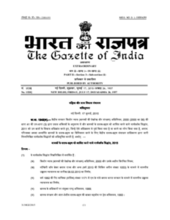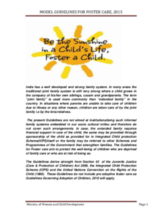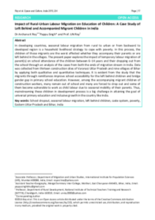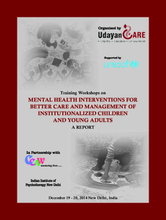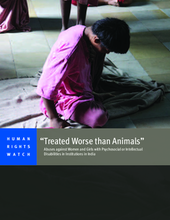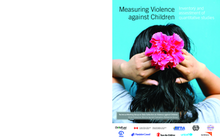childrens_living_arrangement
children_living_without_bio
Displaying 371 - 380 of 427
These Guidelines govern the adoption procedure of orphan, abandoned and surrendered children in India, replacing the Guidelines Governing the Adoption of Children, 2011.
These Guidelines for Foster care aim to protect the well-being of children in India who are deprived of family care or who are at risk of being so.
This paper explores the impact of temporary labour migration of parent(s) on school attendance of children between 6–14 years and their dropping out from school through an analysis of cases from both ends of the migration stream in India - children accompanying their migrant parents and children left behind.
The Central Adoption Resource Authority (CARA) is undergoing a process of linking all child-care institutions across India with one another, according to the article.
The report from the two-day Training Workshops on “Mental Health and Interventions for Better Care and Management of Institutionalized Children and Young Adults” is now available.
This report documents the involuntary admission and arbitrary detention of women and girls with mental health disabilities in mental hospitals and residential care institutions across India.
This report presents the findings from the Child Protection Monitoring and Evaluation Reference Group’s review of data-collection activities in primarily low and middle-income countries.
This article depicts the situation of rescued children who were working on the streets in India. A different approach towards is needed, according to the article.
Foster Care India - an NGO operating in Rajasthan, India aimed at helping the children in need of care and protection in the area through advocacy across Rajasthan and collaborations at local, state, national and global levels - has launched its newest website.
This video features a segment of a talk on the effects of care environments on children, hosted by the Christian Alliance for Orphans. The key speakers featured include Dr. Kathryn Whetten & Dr. Charles Nelson, who discuss the Positive Outcomes for Orphans study (POFO) and the Bucharest Early Intervention Project (BEIP), respectively.

